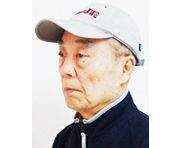A Japanese professor was introducing himself to his new class at a university in Seoul.
“I’m professor Seki and I’m going to teach you…” All the Korean students burst into uncontrollable laughter. “Is anything wrong?” Seki asks. “Your name, sir,”replies came from the still chuckling audience. The newcomer to Seoul later learned that “seki” translates to rascal or son of a b—- in Korean.
Later on he met an associate professor in the city who was also Japanese and named “Fujida,”which is an elegant and noble Japanese name meaning wisteria field. Professor Fujida explained to Seki that “fujida” means backward or underdeveloped in Korean. “I felt kind of awkward standing on the platform so I nicknamed myself Fuji, like Mt. Fuji,” he went on to say.
Japanese names in modern times consist of the family name, followed by a given name, like Korean and Chinese in the order of pronunciation and writing, and they are written in “kanji” (Chinese characters) with Japan’s own pronunciation. Some girls employ phonetic renderings in “hiragana,” the Japanese alphabet, without kanji, which lack the visual meaning of names expressed in the logographic kanji.
Japanese are highly skillful in imitating Western culture so they write their names in the Western style with the given name first, like Shintaro Ishihara, the mayor of Tokyo Metropolis. But it’s always Ishihara Shintaro in Japan. Ishihara means stone field in kanji.
Japanese family names are extremely varied and there are over 100,000 different surnames in use today. Some of the most common are Sato, Suzuki, Takahashi and Tanaka. Aiko, meaning lovely girl, is one of the best-loved names for girl. The only girl child of the heir apparent to the Japanese throne Crown Prince Naruhito and his wife Crown Princess Masako is named Aiko, Princess Toshi.
Japanese names are not only varied but pronounced as one pleases. An extreme case in Okinawa is that the three generations use the same family name in the same kanji but the son and grandson each pronounce it completely differently from the grandfather.
Once there was a Cabinet member surnamed Otearai, meaning in kanji a place for washing ones hands, which is the same as the sign for a public toilet. If you ask anyone in Tokyo “Where is the otearai?” you’ll be cordially directed to a nearby restroom.
While Koreans find it difficult to pronounce “za,” “zu,” “ze,” “zo,” “tsu,” in Japanese, or even in English, for example pronouncing design as “dijain,” Japanese can’t pronounce Korean words ending “ng” or “m.” They say “gonjanjan” for “gongjangjang,” or factory manager, or Kimu for Kim, and kimuchi for kimchi.
That’s not a big problem but it’ll be a bigger problem when they run into each other. The name Kanda means “god’s rice field” in Japanese but said in Korea it means “I’m going,” while Oda, which means a small field in Japanese, sounds like “I’m coming.” Tabata means “at the edge of rice field” in Japanese and is a common name. Miss Tabata was going to marry a Korean man and his friends asked him, “Tabatta? Your fiancée has already seen it all?”
This example clashes awkwardly as Koreans hear it very differently; Japanese innocently pronounce jersey as “jarji.” So they say “new jarji” for New Jersey, and it’s disturbing for me to hear “Nam-san, do you prefer new jarji or soul?” They can’t pronounce the “eo” in Seoul either. Giggling Japanese female tourists, after having learned a few Korean words from their tour guide, stepped into a clothing shop in Seoul, and asked the salesman,“Ajeossi (mister), we’d like to see some Korean jarji, please.”
This rather funny episode, told by the aforementioned language professor Fujida, as a reminder to Japanese tourists in Seoul, continued as the salesman had to show the important customers different sizes of the desired item but sorry, I’m out of the column space.
The writer is a retired architect-specifications writer, who shuttles back and forth between Seoul and New Jersey. Email him at sangsonam@gmail.com. <The Korea Times/Nam Sang-so>



